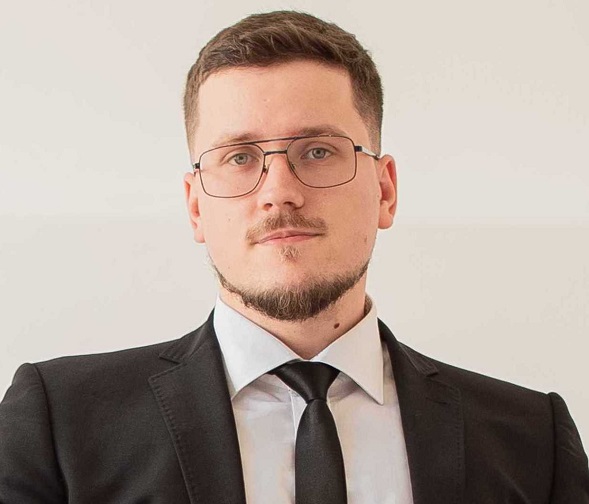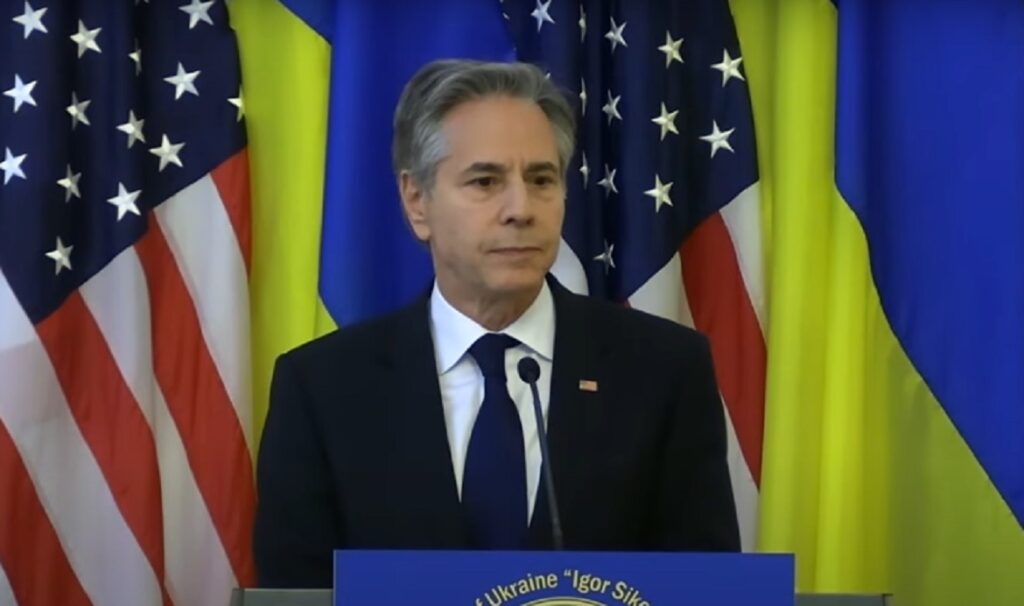World Geostrategic Insights interview with Oleksandr Kraiev on the prospects of Western support for Ukraine.

Oleksandr Kraiev is the Director of the North America Program at the Ukrainian Foreign Policy Prism Council. He is also the Director of the Transatlantic Dialogue and NATO Relations Research Program at the Strategic and Security Studies Group. He teaches international politics at the Institute of International Relations (IMO KNU) and the Kyiv-Mohyla Academy (NaUKMA). He has extensive experience in policy consulting and government relations.
Q1 – After months of war of attrition, Russia is making progress on the battlefield in northeastern Ukraine, targeting Kharkiv, the country’s second largest city. Against this backdrop, U.S. Secretary of State Antony Blinken made a surprise visit to Kiev on May 14 to boost Ukrainian morale, assuring them that they are not alone and announcing a $2 billion fund to help Ukraine build its defense industrial base. Blinken told Ukrainian leaders that despite a months-long delay in U.S. assistance that has left them vulnerable to Russian military attacks, more armaments are on the way, and the billions of dollars in U.S. military aid coming to the country will make “a real difference” on the battlefield. What is your opinion? Was it the long delay in the U.S. Congress approving military aid for Ukraine that allowed Russia to advance militarily, as denounced by former Ukrainian President Viktor Yushchenko? Is the announcement of the additional U.S. military aid really likely to change the course of the ongoing battle in Kharkiv, where Russia currently seems, at least for the time being, to predominate?
A1 – The delay in American support was definitely one of the factors that provided for better preparation of Russian troops both for the Kharkiv offensive and general Russian activation on the whole frontline. Additional aspect of this equation – and also of the possible planned Russian offensive in Sumy region – is the prohibition to use Western-produced weapons on Russian territory. This policy does not allow Ukrainian forces to preemptively strike against the large amassment of Russian troops and their infrastructures. As for American supplies – a lot of it, especially artillery shells, are already getting to the frontline and help to change the tide of the situation.
Q2 – The U.S. Supplemental National Security Package for Ukraine, approved in April 2024, requires the administration led by President Joe Biden to produce a strategy to continue supporting Ukraine against Russian aggression. The strategy is to “help Ukraine end the conflict as a democratic, independent, and sovereign country capable of deterrence and defense,” emphasizing five key strategic goals: (1) integrate Ukraine into the European economic order and transatlantic security, (2) reduce Russia’s ability to circumvent sanctions and access capital, (3) combat the resistance of Russian disinformation campaigns, (4) rethink the arsenal of democracy, and (5) sustain and strengthen Ukraine’s economy and democracy. What is your opinion on the sustainability and outcomes of such a strategy?
A2 – The main concern, from the Ukrainian point of view, is the absence of the issue of NATO membership of Ukraine. It is rightfully perceived as the only possible security guarantee that will not only ensure the non-repetition of Russian aggression, but will also provide for more nuclear security and non-proliferation. Otherwise, any other strategy without NATO membership in one way or another will be perceived as insufficient.
Q3 – The West’s strategy to support Ukraine seems to have failed to yield the desired results. Military support for Kiev and economic sanctions have not stopped Russia. For this reason, some Western countries are considering upgrading military support. France, Germany, Poland, Canada and Philandia are already lifting the ban on Ukraine using their weapons to strike targets in Russia soil. U.S. Secretary of State Antony Blinken, during his visit to Kiev, hinted that Ukrainian forces could bomb Russia with U.S.-supplied military equipment, something they had previously been prohibited from doing. French President Macron has repeatedly warned that European troops may be forced to intervene if Ukraine is unable to stop Russia’s military advance. Poland and the Baltic countries are also pushing for greater military involvement on the battlefield. But most of the other NATO countries seem unwilling to significantly increase military support and its conditions of use, and especially to provide troops for deployment on the ground, even for non-combat duties. What is your opinion? Does Western support for Ukraine maintain the necessary solidity, and its update to the current development of the conflict? Or is there a risk of falling apart?
A3 – I do not see the possibility of Western support falling apart. Generally speaking, we just see the changing nature of such support – more bilateral formats are being established, which proves to be more operational and adaptive than multilateral formats. However the main drawback of current Western support for Ukraine is the strategic miscommunication – we, in Ukraine, are still unaware of the “end-game” strategy of our partners and we don’t know the limit and the full framework of their support.
Q4 – For Ukraine, the conditions for a just end to the conflict appear clear: restore its sovereign territory (i.e., the 1991 borders), rebuild the country in a way that promotes its deep integration into Western institutions, hold Russia accountable for war crimes and force it to pay reparations for the war damage caused. Can these goals, given the situation on the ground, still be achieved as a whole? Can a diplomatic, and consequently, compromise situation still be ruled out?
A4 – We should be more realistic here – unfortunately, as of now, the discussion of achieving 1991 borders nearly died out and it remains more of a strategic narrative than a tactical goal. Other objectives are still on the table, but everything should be built upon a clear understanding that our Western partners are willing and able to provide hard-power guarantees for any possible negotiable situation.
Q5 – A clear division has emerged in U.S. politics, with Democrats largely supporting Biden’s financial and military support for Ukraine and some prominent Republicans, including former President Donald Trump and congressional hardliners, opposing military aid. In your opinion, what real stance would Trump take toward the Ukrainian conflict if elected in the upcoming presidential election in November?
A5 – Concerning Trump, I do believe it is more of a political stance and instrument for him – when Biden is seen as weak on Ukraine, Trump pushes for more weapons and support. When Biden was actively riding on Ukraine’s topic, Trump opposed any military aid.
Oleksandr Kraiev – Director of the North America Program at the Ukrainian Foreign Policy Prism Council.







